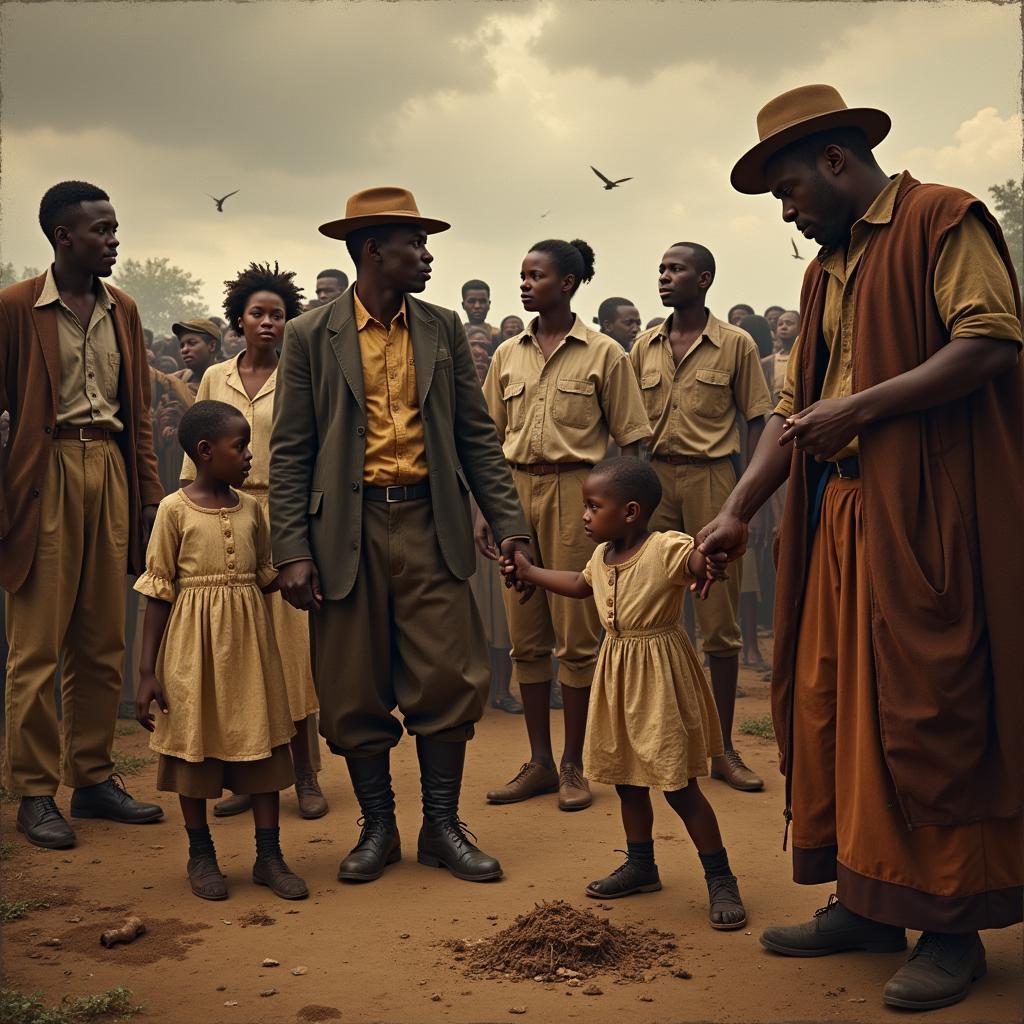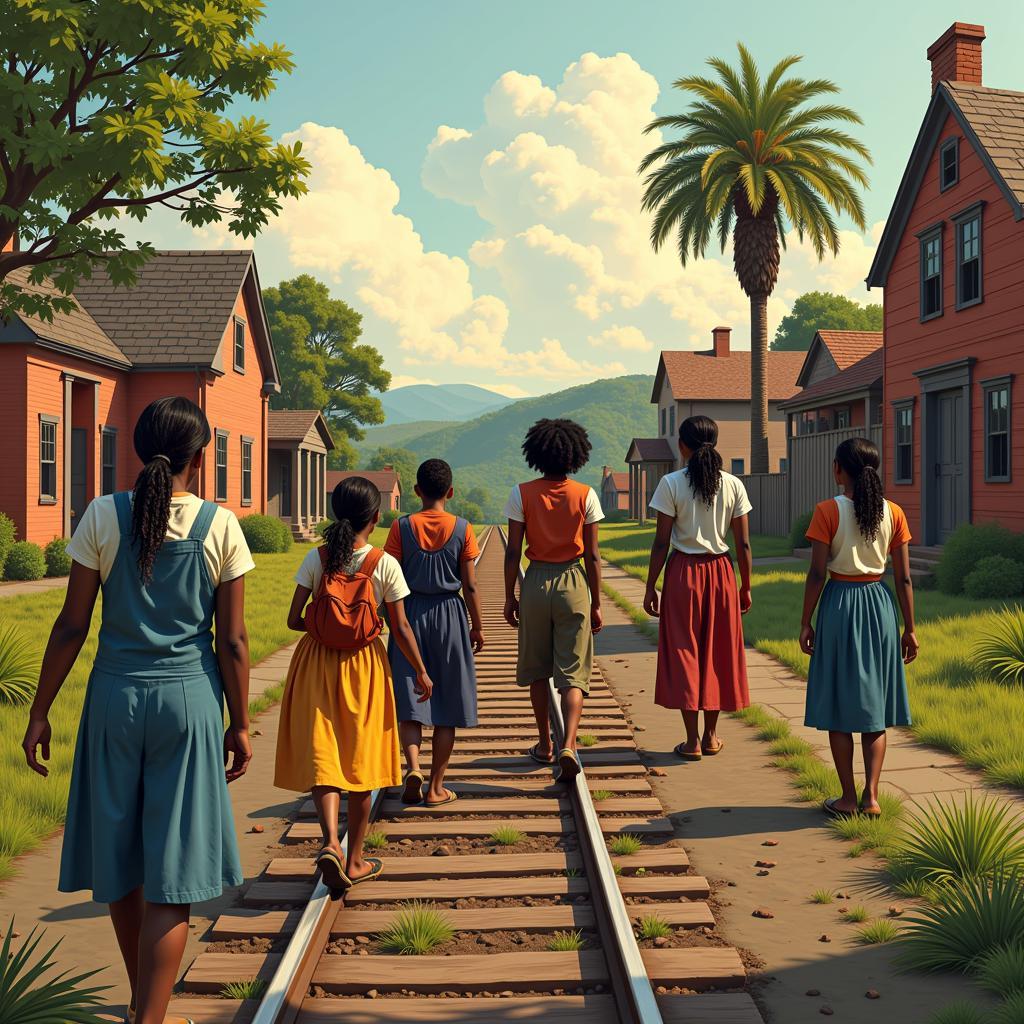Uncovering the Power of African American Slave Narratives
African American Slave Narratives offer a crucial window into the brutal realities of slavery in the United States. These firsthand accounts, penned by those who endured the unimaginable, serve as powerful testaments to the resilience of the human spirit and provide invaluable insights into the social, political, and cultural landscape of their time. african american culture
The Importance of First-Person Accounts
African American slave narratives hold immense historical significance because they offer a perspective often excluded from mainstream historical narratives. These narratives challenge the sanitized and often romanticized depictions of slavery presented by slave owners and other members of the dominant society. They provide raw, unfiltered accounts of the physical and psychological trauma inflicted upon enslaved individuals, revealing the dehumanizing nature of the institution.
These narratives are not just stories of suffering, however. They are also stories of resistance, resilience, and hope. They document the various ways enslaved people maintained their dignity, their culture, and their faith in the face of unimaginable adversity. They reveal the intricate networks of support that existed within enslaved communities, and the strategies individuals employed to navigate the treacherous terrain of slavery.
 A depiction of a family being separated at a slave auction
A depiction of a family being separated at a slave auction
Famous African American Slave Narratives: Voices of Resilience
Several narratives have achieved canonical status, serving as cornerstones of African American literature and offering profound insights into the slave experience. The Narrative of the Life of Frederick Douglass, an American Slave, stands as one of the most influential. Douglass’s eloquent prose and powerful storytelling captivated audiences, exposing the horrors of slavery and advocating for abolition.
Incidents in the Life of a Slave Girl, written by Harriet Jacobs, provides a rare and harrowing account of a woman’s experience of slavery, highlighting the unique vulnerabilities faced by enslaved women. Her narrative sheds light on the sexual exploitation and psychological manipulation endured by countless women under the system of slavery.
The Legacy of African American Slave Narratives
These narratives continue to resonate today, offering invaluable lessons about the past and informing contemporary discussions about race, inequality, and social justice. They serve as powerful reminders of the ongoing struggle for human rights and the importance of amplifying marginalized voices. By studying these narratives, we can gain a deeper understanding of the lasting impact of slavery on American society and the continued need to confront its legacy.
african american history textbook
How did slave narratives impact the abolitionist movement?
Slave narratives played a crucial role in fueling the abolitionist movement by providing firsthand accounts of the horrors of slavery, galvanizing public opinion against the institution.
What challenges did enslaved people face in writing and publishing their narratives?
Enslaved individuals faced immense challenges in writing and publishing their narratives, including limited literacy, the threat of retribution, and the difficulty of gaining access to publishing resources.
Why are slave narratives important for understanding African American history?
Slave narratives are essential for understanding African American history as they offer unique insights into the lives, experiences, and perspectives of enslaved individuals, providing a counter-narrative to dominant historical accounts.
 Depiction of people escaping through the Underground Railroad
Depiction of people escaping through the Underground Railroad
Dr. Angela Davis, a renowned scholar of African American history, states, “Slave narratives provide an essential lens through which we can understand the complex and multifaceted nature of the African American experience.”
Professor Henry Louis Gates Jr., a leading literary critic, notes, “These narratives are not simply historical documents; they are works of literature that continue to speak to us today, challenging us to confront the ongoing legacy of slavery.”
Conclusion: Preserving and Amplifying Voices from the Past
African American slave narratives remain a vital part of our collective history. They offer a powerful testament to the human spirit’s ability to endure and overcome even the most brutal forms of oppression. By studying and engaging with these narratives, we honor the memory of those who suffered under slavery, and we gain a deeper understanding of the ongoing struggle for justice and equality. These narratives remind us of the importance of listening to marginalized voices and working towards a future where all people are treated with dignity and respect.
FAQ
- What is the significance of African American slave narratives?
- How did these narratives contribute to the abolitionist movement?
- Who are some of the most prominent authors of slave narratives?
- What are some of the common themes found in these narratives?
- How do these narratives continue to resonate today?
- Where can I find more information about African American slave narratives?
- What other historical sources can complement my understanding of slavery?
For further support, contact us at +255768904061, email kaka.mag@gmail.com, or visit us at Mbarali DC Mawindi, Kangaga, Tanzania. Our customer service team is available 24/7.

